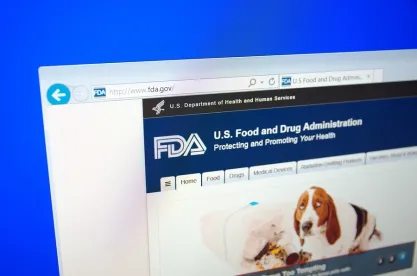In a press announcement released on September 11, 2018, FDA Commissioner Scott Gottlieb, M.D., emphasized the Agency’s continuing concerns about kratom products. Our readers may remember our previous posts about kratom, also known as Mitragyna speciosa, which is a plant that grows naturally in Thailand, Malaysia, Indonesia, and Papua New Guinea. According to FDA, there is evidence that certain substances found in kratom are opioids and out of concern for the public health, FDA has advised consumers to avoid kratom or its psychoactive compounds, mitragynine and 7-hydroxymitragynine, in any form and from any manufacturer. FDA notes that they are not alone in their concern about the opioids found in kratom, as it is already illegal or controlled in several other countries including Australia, Denmark, Germany, Malaysia and Thailand. The substance is also banned in a number of states and municipalities in the U.S.
Kratom has been sold as dietary supplements (e.g., teas, powders, capsules) that are marketed to relieve opium withdrawals and to treat ailments including diarrhea, depression, diabetes, obesity, high blood pressure, stomach parasites, diverticulitis, anxiety, and alcoholism, among others. However, according to FDA, there have been no adequate and well-controlled scientific studies involving the use of kratom as a treatment for opioid use withdrawal or other diseases in human. Nor have there been studies on how kratom, when combined with other substances, may impact the body, its dangers, potential side effects, or interactions with other drugs. Thus, marketers are selling kratom with unsubstantiated claims. Selling unapproved kratom products with claims that they can treat opioid withdrawal and addiction and other serious medical conditions is a violation of federal law.
On September 4, 2018, FDA issued warning letters to two companies, Chillin Mix Kratom and Mitra Distributing, for marketing kratom products with scientifically unsubstantiated claims. In the letters, FDA states that the claims made establish that the kratom products are drugs as defined by section 201(g)(1) of the Federal Food, Drug, and Cosmetic Act (FD&C Act), 21 U.S.C. 321(g)(1), because they are intended for use in the diagnosis, cure, mitigation, treatment, or prevention of disease. Even more, FDA stated that the kratom products are “new drugs” under section 201(p) of the FD&C Act, 21 U.S.C. 321(p), because they are not generally recognized as safe and effective for use under the conditions prescribed, recommended, or suggested in their labeling. Under section 505(a) of the FD&C Act, 21 U.S.C. 355(a), new drugs may not be introduced or delivered for introduction into interstate commerce without prior approval from FDA.
These warning letters are the latest action in FDA’s regulation and enforcement of kratom manufacturers and marketers. In May of 2018, FDA announced it had issued warning letters to three companies marketing kratom products with medical claims, similar to the claims presently at issue. Additionally, on April 2, 2018, FDA issued its first ever mandatory recall order for all products containing powdered kratom manufactured, processed, packed, or held by Triangle Pharmanaturals LLC, after several tested positive for salmonella.
In light of the current opioid epidemic in the United States, FDA states they will continue to urge consumers not to consume kratom and to seek appropriate medical care from their health care provider, as well as take action against those who put the safety of American consumers at risk.



 />i
/>i

